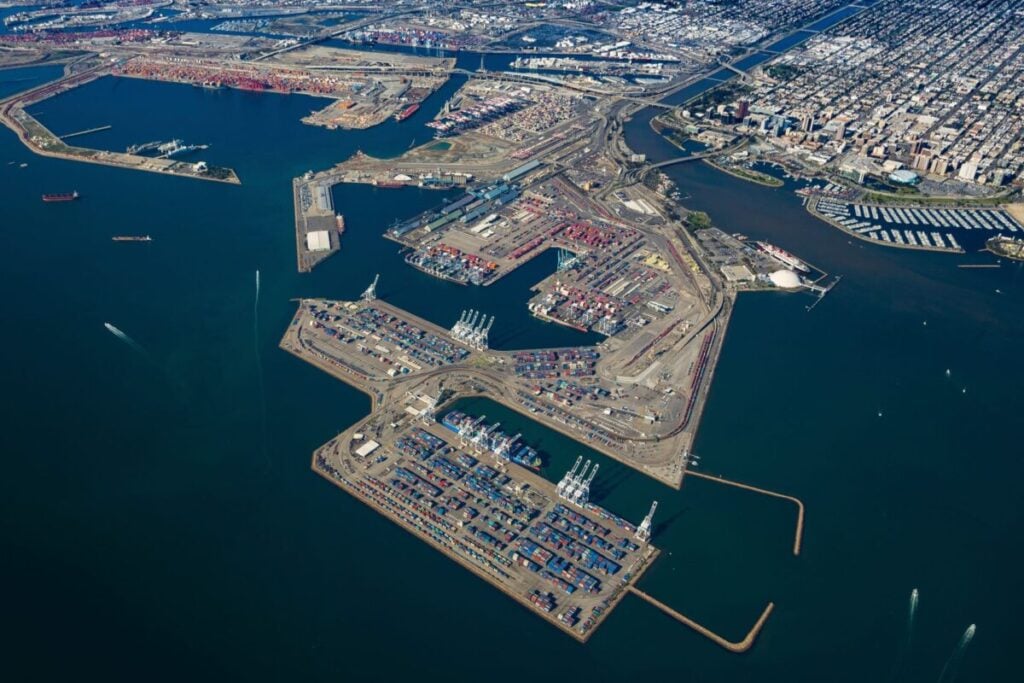
Clean Energy Associates (CEA) has warned its clients of a renewed danger of Uyghur Forced Labour Prevention Act (UFLPA) enforcement against solar PV products under president Donald Trump and secretary of state Marco Rubio.
According to a LinkedIn post on Tuesday (05 August) from Christian Roselund, senior policy analyst at the CEA, “electronics” detentions – the category that includes solar products and batteries – reached their highest level in June since October 2024, climbing to US$15.6 million.
Try Premium for just $1
- Full premium access for the first month at only $1
- Converts to an annual rate after 30 days unless cancelled
- Cancel anytime during the trial period
Premium Benefits
- Expert industry analysis and interviews
- Digital access to PV Tech Power journal
- Exclusive event discounts
Or get the full Premium subscription right away
Or continue reading this article for free
“We had six relatively quiet months for ‘electronics’ detentions, but now the trend line may be kicking back up,” wrote Roselund.
Korean-made solar cells by Hanwha Solutions detained at US border
News of the apparent uptick in detentions follows a report from Korean news outlet Dong-A-Ilbo on Monday (4 August) stating that solar cells produced in South Korea by Hanwha Solutions have been detained at the US Border since mid-June.
According to the news outlet, the solar cells have been detained at the port of Long Beach, California, under suspicion of use of polysilicon produced under forced labour in the Chinese region of Xinjiang.
“We remain confident in our supply chain, which is sourced entirely outside of China, and optimistic that this situation will be resolved soon,” a spokesperson from Hanwha told PV Tech.
PV Tech has contacted the US Customs and Border Protection (CBP) for comment regarding the detention of solar cells produced in South Korea at the US border. In a statement to Dong-A-Ilbo, Hanwha said it was cooperating with US authorities’ requests for documentation.
Hanwha Qcells is currently the only solar manufacturer in the US building a vertically integrated manufacturing plant that comprises ingots through solar panels. Located in Cartersville, Georgia, the 3.4GW vertically integrated manufacturing plant is in the same state as the company’s other US solar manufacturing plant, a 5.1GW module assembly plant in Dalton.
The UFLPA was signed into law by former US president Joe Biden and came into force in June 2022 in order to prevent products thought to be associated with forced labour in Xinjiang from reaching the US.
Hanwha is the latest solar manufacturer to see some of its products being detained at the US borders. Last year, Maxeon had modules produced in Mexico and shipped to the US detained by the CBP under the UFLPA.
A subsidiary of JA Solar, Donghai JA Solar Technology Co., was also added to the UFLPA entity list by the US Department of Homeland Security (DHS) in January 2025 and was banned from shipping goods to the US. However, an investigation by the Solar Stewardship Initiative (SSI) later found that the legal entity that the DHS had put on the UFLPA Entity List had ceased production in 2018.
Updated on 11.08.25 to add a comment from Hanwha.






